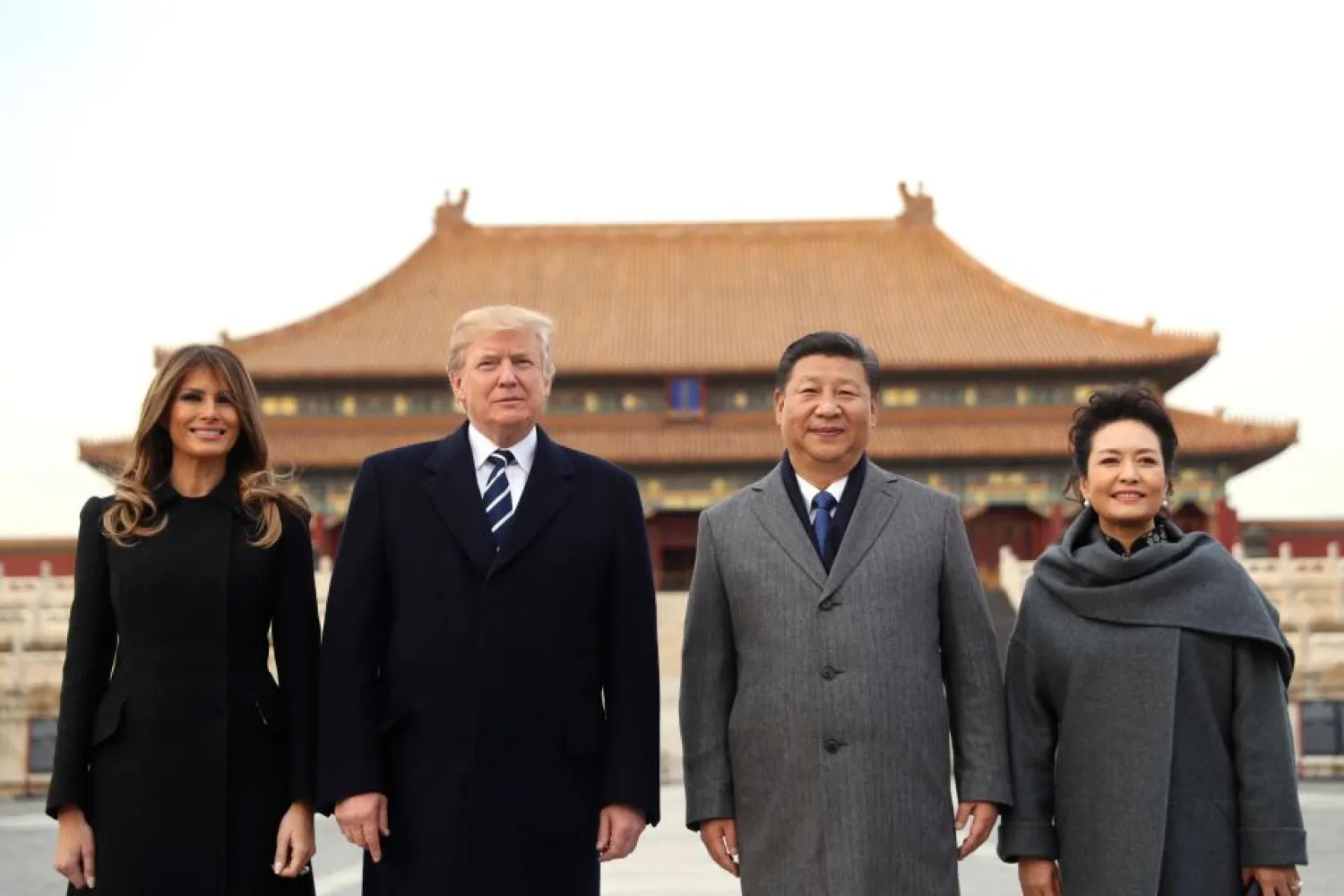US President Donald Trump arrived in China on Wednesday after escalating his rhetoric against North Korea in a speech delivered in Seoul.
He warned North Korean leader Kim Jong-un that the nuclear weapons he is developing “are not making you safer, they are putting your regime in grave danger.”
Trump used some of his toughest language yet against North Korea in a wide-ranging address in Seoul that lodged specific accusations of chilling human rights abuses. He called on countries around the world to isolate Pyongyang by denying it “any form of support, supply or acceptance.”
“Do not underestimate us and do not try us,” Trump told North Korea as he wrapped up a visit to South Korea with a speech to the National Assembly before heading to Beijing, where he was making his first official visit.
Trump painted a dystopian picture of the reclusive North, saying people were suffering in “gulags” and some bribed government officials to work as “slaves” overseas rather than live under the government at home. He offered no evidence to support those accusations.
Trump’s return to harsh, uncompromising language against North Korea came a day after he appeared to dial back the bellicose rhetoric that had fueled fears across east Asia of the risk of military conflict. On Tuesday, Trump had even offered a diplomatic opening to Pyongyang to “make a deal.”
He went mostly on the attack in Wednesday’s speech but did promise a “path to a much better future” for North Korea if it stopped developing ballistic missiles and agreed to “complete, verifiable and total denuclearization” – something Pyongyang has vowed never to do.
The North defends its weapons programs as a necessary defense against what it says are US plans to invade. The United States, which has 28,500 troops in South Korea, a legacy of the 1950-53 Korean war, denies any such intention.
In Beijing, Trump and Chinese President Xi Jinping resumed their “bromance” struck in April at Trump’s Mar-a-Lago resort in Florida, making small talk as they toured the Forbidden City with their wives.
While the sprawling palace complex in the political and cultural heart of Beijing is a regular stop for visiting dignitaries, it is rare that a Chinese leader gives a personal escort, confirmation of the “state visit-plus” treatment that China had promised for Trump.
Trump and his wife Melania were greeted at Beijing’s airport by a military band playing a festive tune and school children jumping up and down and waving American and Chinese flags.
They descended from a red-carpeted staircase rolled up to the main door of Air Force One. That was in contrast to a 2016 visit to China by his predecessor, Barack Obama, who was forced to exit his plane from a lower door, in what was seen as a snub.
Trump has threatened action over China’s wide trade surplus with the United States and called on Beijing to do more to rein in ally and neighbor North Korea, but has expressed admiration for Xi, calling him a friend, and held off on imposing trade measures.
Trump will ask China to abide by United Nations resolutions and cut financial links with North Korea, a senior White House official said on the plane from Seoul.
He is expected to demand that China curtail its dealings with Pyongyang and expel North Korean workers. Trump has praised China for taking some steps against Pyongyang but urged them to do more, as administration officials believe the border between China and North Korea remains a trade corridor.
Before leaving for Beijing, Trump cited China, North Korea’s main trading partner, as one of the countries that must fully enforce international sanctions against Pyongyang and downgrade diplomatic and commercial ties.
Trump believes any talks with North Korea would require reducing threats, ending provocations and movement toward denuclearization, and that no deal can be achieved without denuclearization, the official added.
While Trump will try to convince Xi to squeeze North Korea further with steps such as limits on oil exports and financial transactions, it is not clear if Xi, who has just consolidated his power at a Communist Party congress, will agree to do more.
China has repeatedly said its leverage over Pyongyang is exaggerated by the West and that it is already doing all it can to enforce sanctions.
Xi’s warm reception of Trump has meanwhile come under scrutiny.
"Trump keeps portraying his relationship with XI as great pals but that's wildly naive," said Mike Chinoy, an expert on East Asia policy at the US-China Institute at the University of Southern California. "The Chinese have figured out how to play Trump: flatter him. And there's nothing the Chinese do better than wow foreign diplomats."
Trump talked tough during his campaign about fixing American's trade relationship with China and labeling it a "currency manipulator." But he has signaled that he would take it easy on Beijing if it will help with the nuclear threat from North Korea.
"Trump has mortgaged the whole US-China relationship to get the Chinese on board with the North Korea plan," Chinoy said. "He is now coming at it from a position of weakness."
White House officials have said that if Trump were to chide Xi about human rights or democratic reforms he would likely do it privately. Andrew Nathan, a political science professor and China expert at Columbia University, said Trump's "infatuation" with Xi was reminiscent of former Secretary of State Henry Kissinger's fascination with Zhou Enlai, the first Premier of the People's Republic of China.









